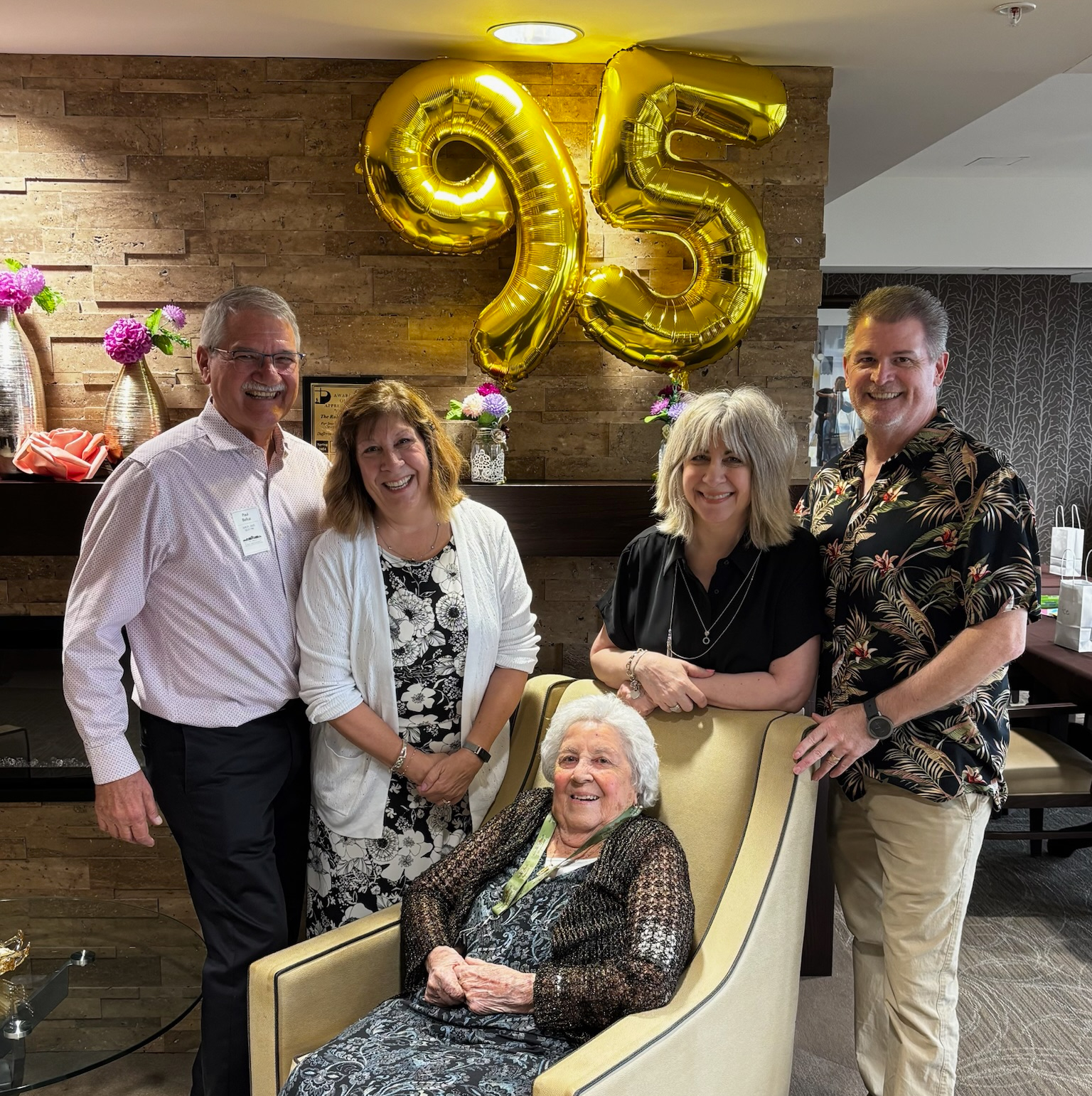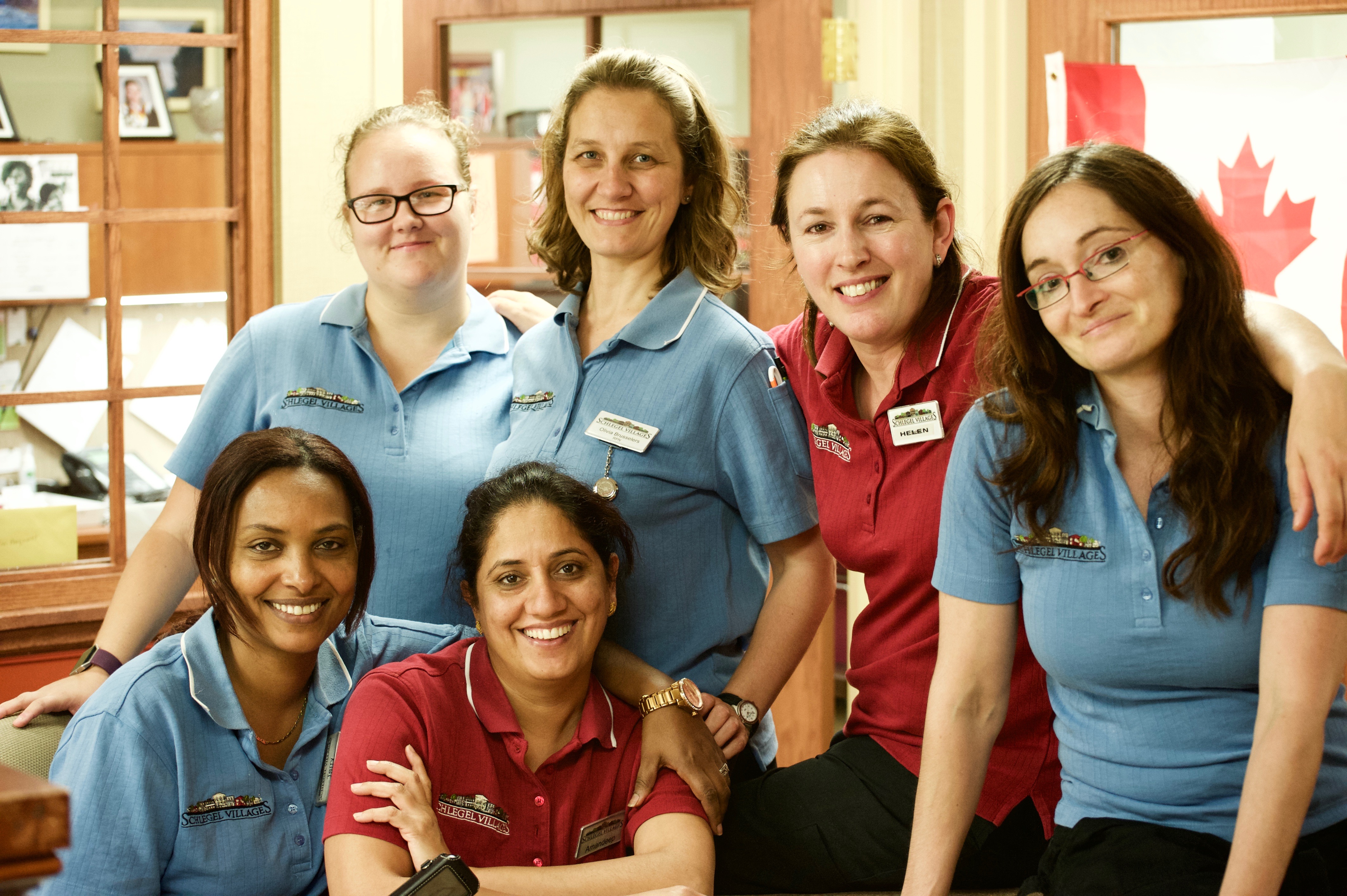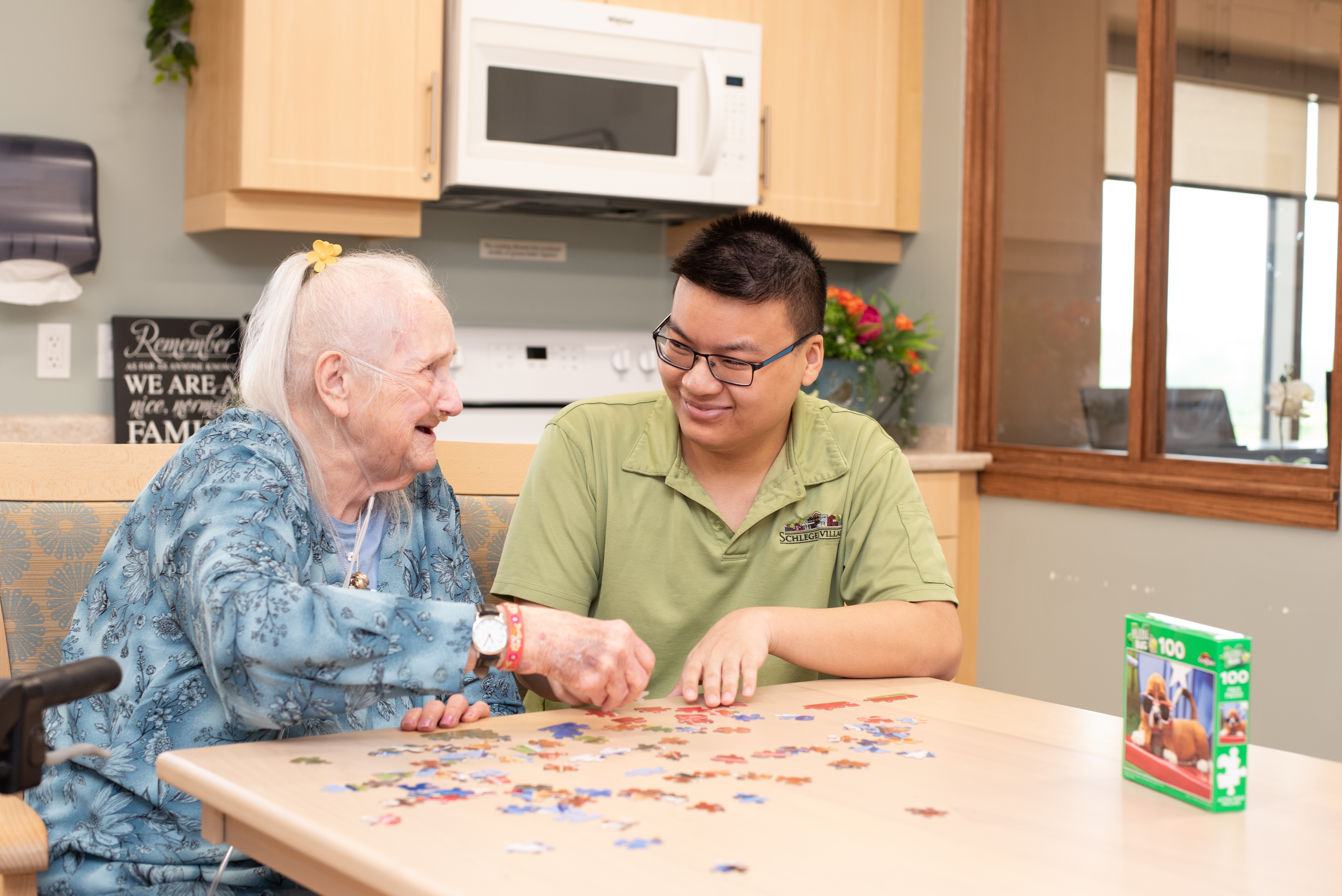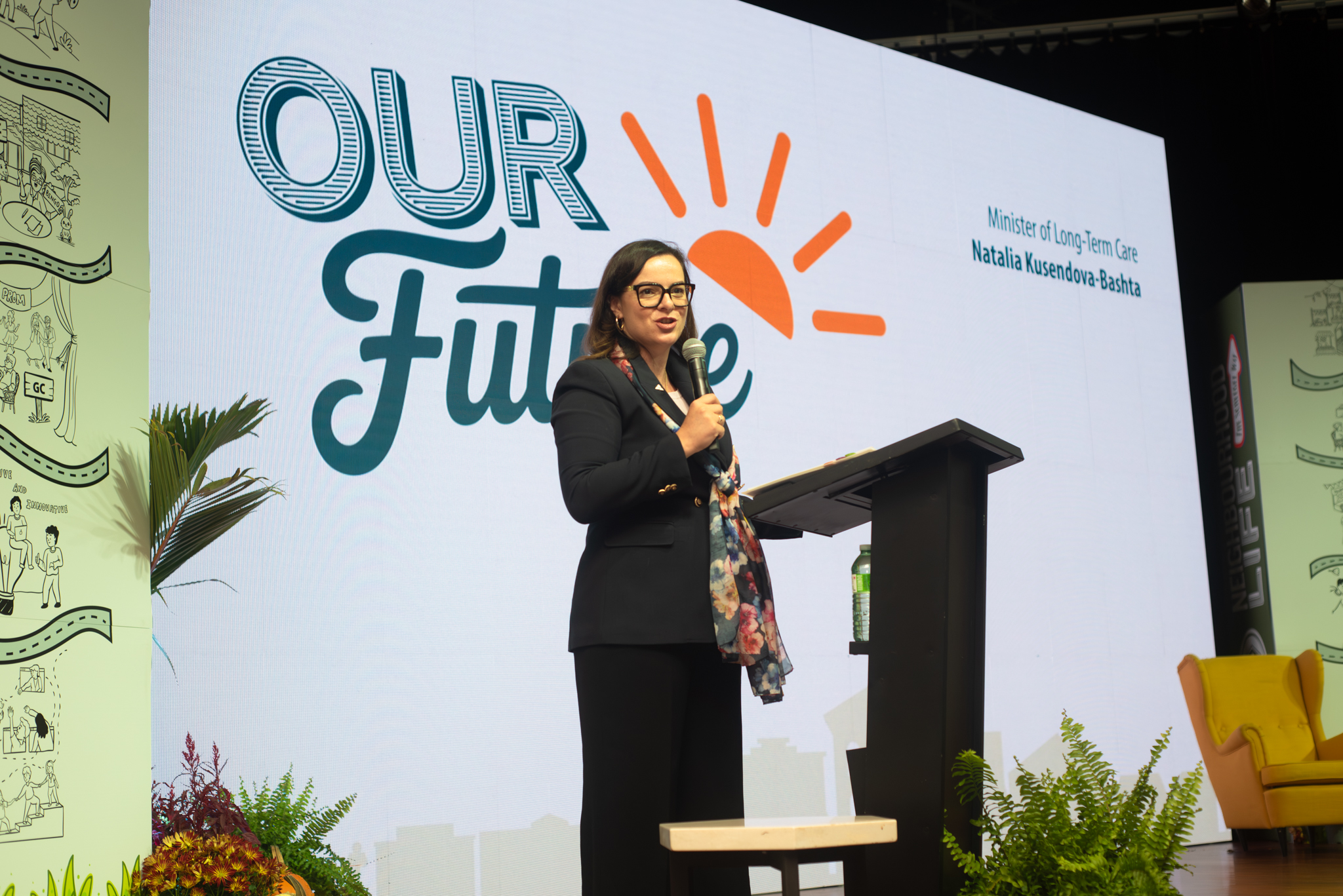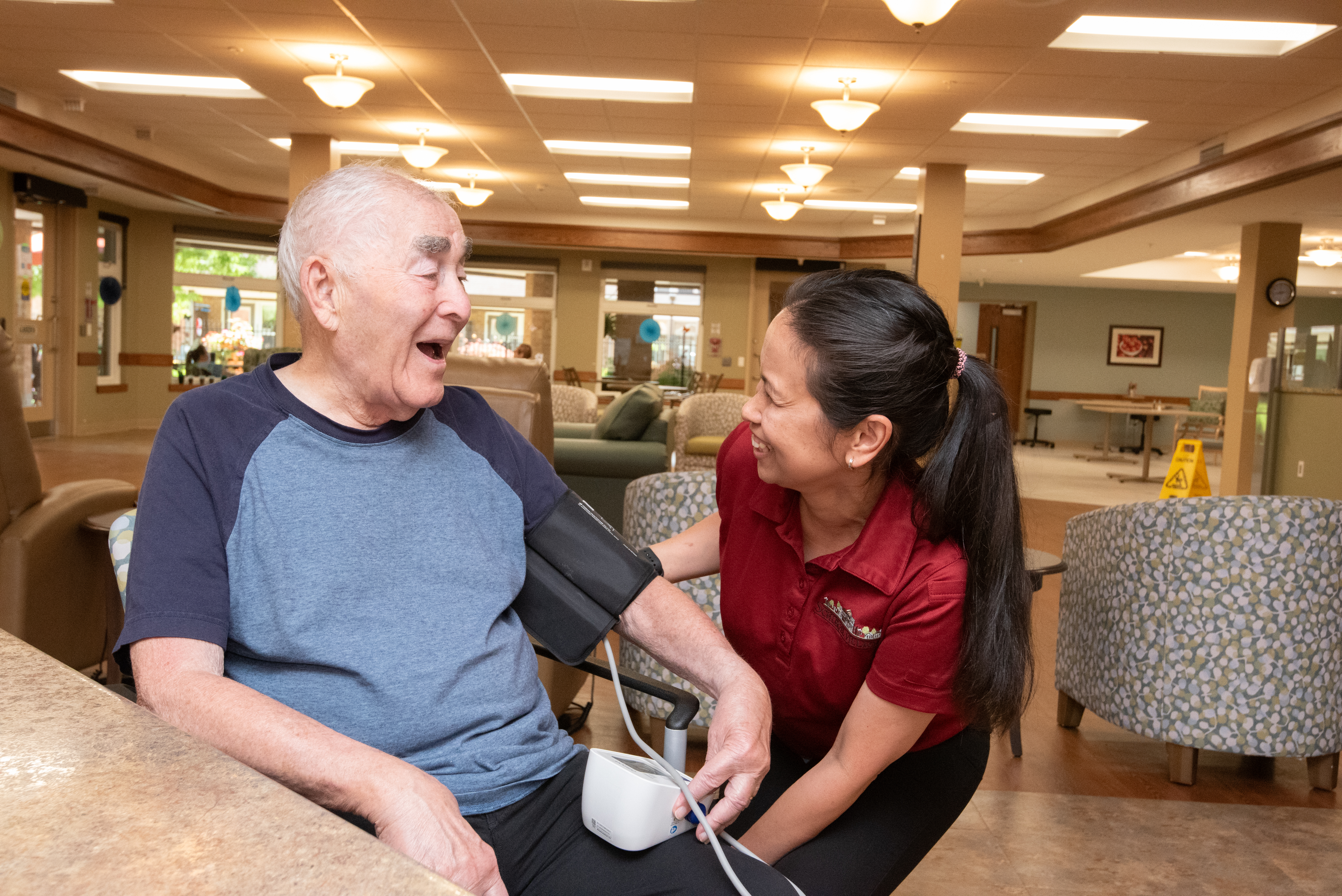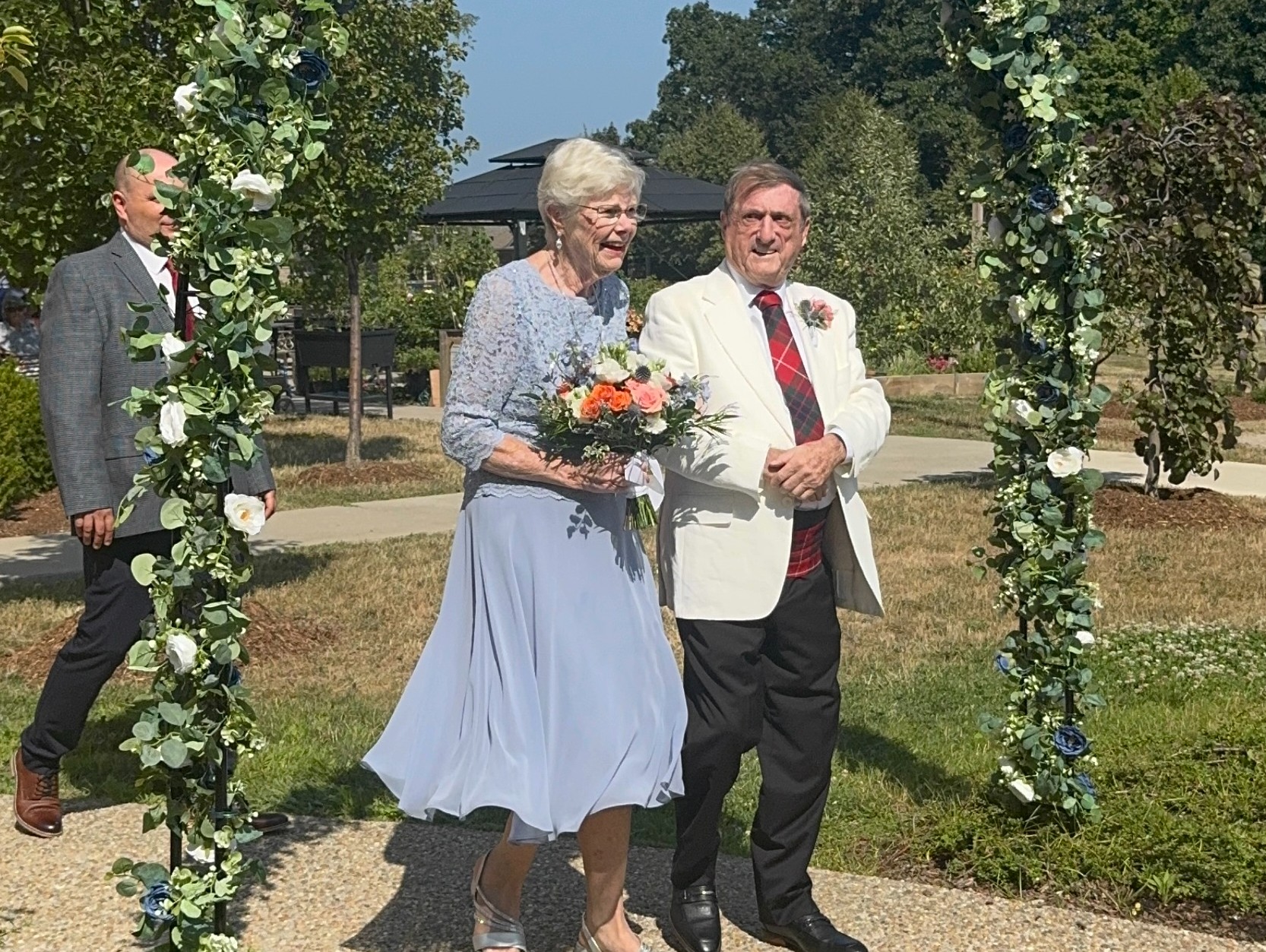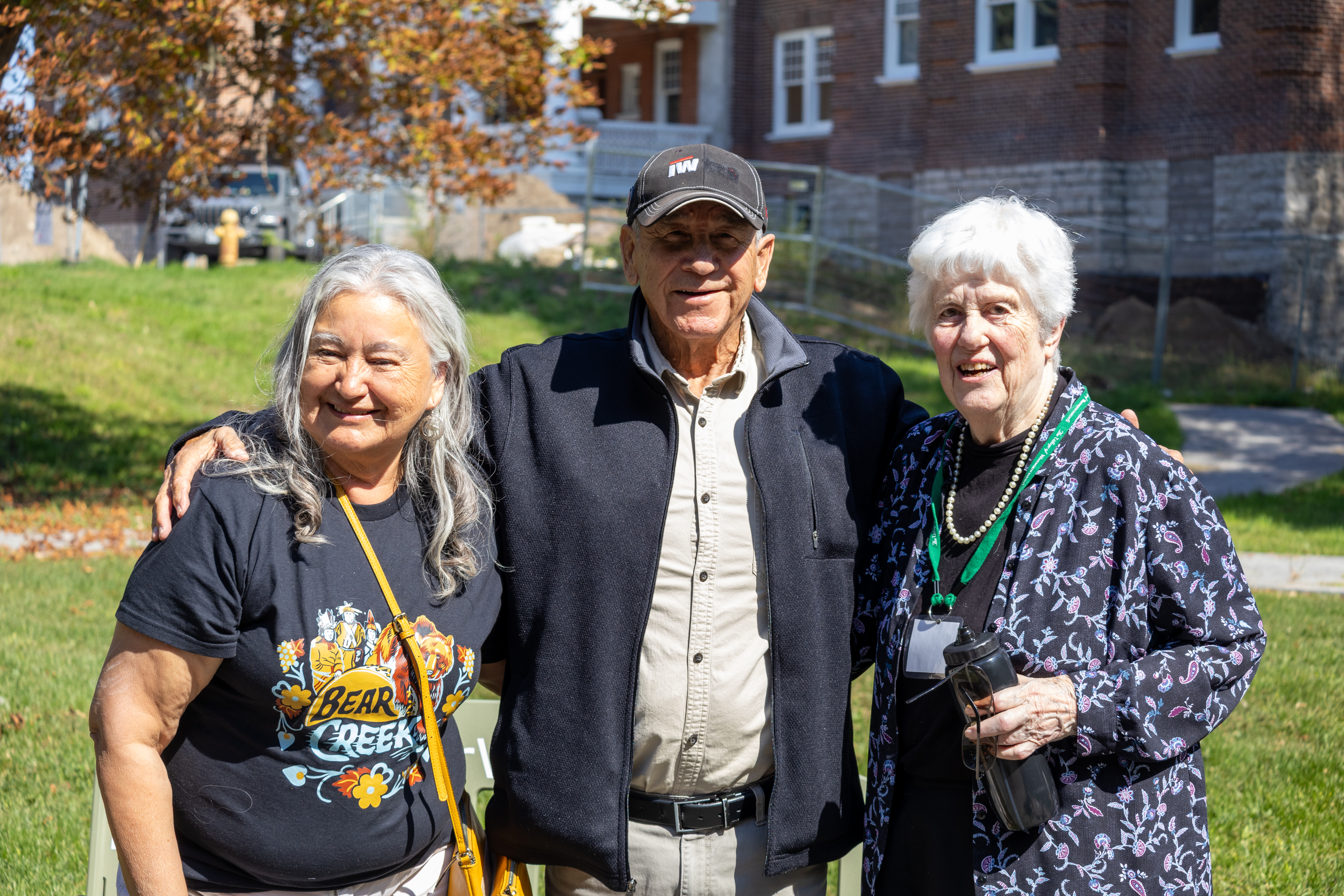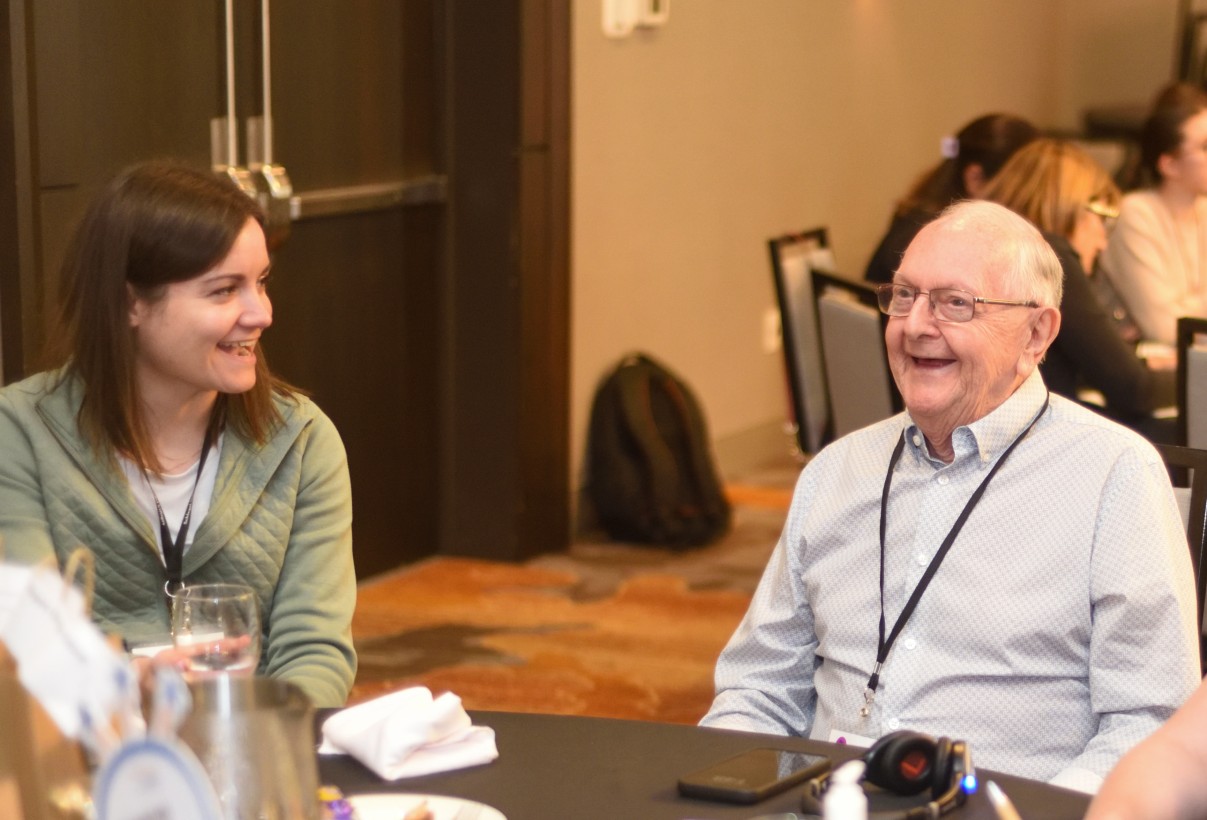Isolated in a corner of the stage in a large convention room at the Sheraton Hotel in Niagara Falls, Brain LeBlanc sits upon a single chair with his back to an audience of 360 people connected to Schlegel Villages.
The imagery is striking.
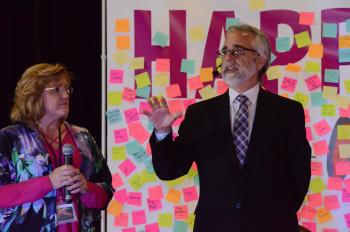
With charisma and charm, Brian Leblanc, with his care
partner Carmen, spoke eloquently about living well with dementia
at the annual Operational Planning Retreat in late September.
Brian has come from his home in Florida to speak on the final day of the organization’s annual Operational Planning retreat from the perspective of someone living with dementia.
Upon that stage, he looks utterly alone. Is this what that diagnosis feels like? Does it force people into the margins, ushering them into solitary seclusion? There is silence as his space is illuminated, and his voice rings out.
“ ‘I know you don’t remember but . . .’ He says. “That was the phrase that my family used to use whenever they would tell me something or they would ask me a question. They didn’t think I would remember anything from a moment before, a week before or a month before, but I did.”
Brian pauses and silence falls over the room once again.
“ ‘So how’s he doing?’
“Those are the words that were spoken by people that know me that I would see in public spaces,’ Brian then recalls. “They would come up to me and tell me ‘Hi,’ and then they would turn to whoever I was with and say, ‘So, how’s he doing?’ They would say it in a hushed tone almost like they didn’t want me to hear them say that.”
“They were afraid I wasn’t going to be able to answer the question.”
He felt like he was shoved in a corner, and after he shares a few more stereotypical phrases he’s all too familiar with he springs from the corner to the middle of the stage and proclaims: “We don’t belong in a corner. We belong right here in the centre!”
Brian speaks with the charisma and charm one might expect from a man who made a career in public relations and marketing, and he speaks from his heart about his experience since diagnosis four years ago.
He shares the reality that on some days, such as this one, he functions at a high level, entirely aware of everything around him. On others, however, such as the day before when he flew into Buffalo, he’s completely at the mercy of his care partner and friend, Carmen.
She filmed him in that state at the airport, later to be shared through social media. This is Brian’s way of sharing truth with the world, his means of challenging myths by letting people see all sides of Alzheimer’s disease and dementia.
He tells the audience about his family history going back to his great grandmother who most assuredly died of Alzheimer’s in the late 1800s, right up to his grandfather, father and mother, who all succumbed to some form of dementia. His mother died four months after he was diagnosed.
This disease is far from an unknown to Brian Leblanc, and he chooses to live well for he believes there is no other choice. “Otherwise we’re letting the disease win,” he says.
And it is entirely possible to live well in the face of this disease.
He enjoys the simple things in life. He takes long drives with Carmen and they often stop along the way to take photos of sunsets or flowers or anything that strikes their eyes, for together they live in each moment. Capturing those images, Brian says, “helps to bring beauty to life. In that moment I have that moment and then I can look back and relive that moment”
He laughs a lot, he and Carmen both. Laughter is the gift that helps us to live well, he says, and to live productively.
And he is grateful; grateful for Carmen; grateful for Alaskan cruises; grateful for good friends who challenge him and offer no slack; and he’s grateful that he can speak to the audience he’s before on this day on behalf of those who no longer can.
“I am so honoured to be in front of an entire organization that (cares for others) day after day after day, and I want to thank you, every single one of you, for what you do,” he says. “There are people that you deal with each and every day that may not remember to thank you, so I’m thanking you for what you do for them.”
He’s thankful to be living well with dementia upon the centre of life’s stage.
Read more about Brian's journey with dementia on his blog
- Previous
- View All News
- Next
